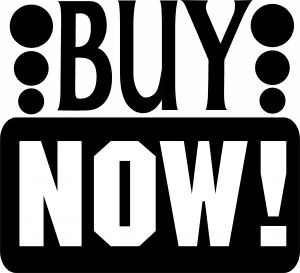Guest Post: "What Does Marketing Strategy Have to do with Bookkeeping?" by Haley Lynn Gray
I have run across more than a few small business owners - some doing okay for themselves, others not - who take the shotgun approach when it comes to marketing their business. The first key is when they tell me that they have “The Facebook”, and they’re doing “ads”, and they are doing a bit of this and a bit of that.
I know that they are likely trying everything they come across, with little regard for the strategy and overall marketing plan. It’s not that I don’t believe in being spontaneous, or even getting creative with part of your marketing. But the reality is that nearly every piece of your marketing should come together; it should all work together, sort of like an orchestra.
 If you start running Facebook ads without a solid presence and good organic reach, the cost of your ads is going to be significantly higher, and the cost per client for acquisition is going to be dramatically higher. In some cases, I’ve seen the cost of a lead being 5-10 times the cost that it would be with a good organic strategy.
If you start running Facebook ads without a solid presence and good organic reach, the cost of your ads is going to be significantly higher, and the cost per client for acquisition is going to be dramatically higher. In some cases, I’ve seen the cost of a lead being 5-10 times the cost that it would be with a good organic strategy.
The same concept applies to Google Adwords. The lower your SEO ranking, and the less high quality content you have on your website, the higher your cost will be to advertise with Google Adwords.
I see people who toss up a landing page using Web.com, YP.com or others. Unfortunately, if you take this approach, you might be building links to a website that isn’t your own. It won’t help you get that organic reach for your website and you’re losing control of the process. You’ll also end up spending more money for fewer leads, and thus end up with fewer results.
 It’s important to have a strategy with all the pieces coming together. Sometimes the tweaks can be tiny, like adding a clear call to action on every blog post, or making a point of collecting email addresses so that you can stay in touch with people via email campaigns. It takes strategy and planning to collect those email addresses and to execute a well thought-out marketing campaign. By thinking through how all of the pieces should work, and with help from a strategist if you need one, you can end up saving a lot of money.
It’s important to have a strategy with all the pieces coming together. Sometimes the tweaks can be tiny, like adding a clear call to action on every blog post, or making a point of collecting email addresses so that you can stay in touch with people via email campaigns. It takes strategy and planning to collect those email addresses and to execute a well thought-out marketing campaign. By thinking through how all of the pieces should work, and with help from a strategist if you need one, you can end up saving a lot of money.
Every business needs a strategy and a budget. So does a marketing plan. Everything should be measured, and data should be collected on how your system is performing so that it can be tweaked and improved. Do these steps for every aspect of your business and you will see savings and a healthier bottom line.
Haley Lynn Gray is CEO and Founder of Leadership Girl, a digital marketing agency, where she uses her skills as a sales and marketing strategist and social media expert to help small business owners grow their business.She combines her years of real-life and business experiences with her MBA from Duke’s Fuqua School of Business to benefit her clients. Haley works with them closely to set goals and put processes in place so they can achieve and exceed their goals.
Haley, along with her team, can also help with social media management, website updates, drip campaign management, and all aspects of business marketing.
In addition to running her business, Haley is a mom of four, a Girl Scout Leader and an author of two best-selling books. Haley is truly passionate about helping entrepreneurs achieve their potential, and empowers them to overcome obstacles in entrepreneurial ventures. www.leadershipgirl.com
Living a Lie: The mistakes that make entrepreneurs go broke
"You have to spend money to make money."
"Maintain the image of success."
"Fake it 'til you make it."
There is an ideal of the successful entrepreneur as a jet-setting globetrotter, someone living high on their quickly-amassed profits earned through their brilliant business insight. We want the overnight success and rock star-status of Richard Branson. (Comparatively, Larry Ellison, who has over eight times the net worth of Branson, took a less meteoric path to wealth, and is relatively unheard of.)
The unfortunate side effect of our idolization of instant-millionaire entrepreneurs is that many have come to associate that glamorized lifestyle with proof of product value. In other words, "If I look and act successful, people will assume I know what I'm doing and hire me for my services!"
Here are the four most common ways entrepreneurs blow money on an image.
"I've gotta get my name out there."
Advertising is great. Advertising is essential. By all means, advertise! However...
Don't blow your budget on advertising. While seeing your company on a billboard or hearing your name on the radio is a great feeling, don't throw your money away on that illusion of the "big-time" without knowing for sure that you are going to get a good return on your investment. This is a mistake we have seen time and time again.
I once personally witnessed a (now closed) local small business flush away thousands of dollars on a radio ad which they were convinced would result in a flood of customers to their large weekend sale. They scheduled additional staff, opened early, and...no one showed. The ad was ineffective. In their frustration and desire to not have their money wasted, they played the ad on loop inside the store (i.e., the place where customers weren't), succeeding only in driving their employees crazy.
For the majority of small businesses, big-budget ad campaigns are not worth it in the early days. A local tv spot might make you feel like a celebrity (for better or for worse, given the quality of most local tv ads), but it cannot match the per-dollar effectiveness of a decent website, solid social media engagement, and positive word-of-mouth.

"I have to have a nice place to meet clients/customers."
The information age has transformed the world, and the way we do business in it. Meeting clients over coffee or lunch is a perfectly valid option, as is selling products online without a physical storefront. However, many entrepreneurs still seem to feel as if their business is less legitimate without a physical location.
Rent on offices and storefronts is a significant monthly expense, and that does not include furnishings, utilities, etc. Having a separate workplace to travel to on a daily basis has mental benefits in improving productivity, but it is not a cost to be considered lightly, nor is it a business essential nowadays. A gorgeous office with a big mahogany desk is a nice long-term goal, but it is not worth putting your company in the red.
"Yeah, I think I've got a place in the business for you."
We have written before on the dangers of expanding too early. However, this becomes doubly dangerous when owners begin creating positions for the sake of hiring friends and family. Middle management, and other positions which are not directly involved in revenue generation, are rarely necessary in a young company. It is good to be surrounded by people you like and trust, but, until your business has enough sustained profitability, employing people for positions you really can't support is like inviting people onto a raft with a hole in it. Everyone just starts sinking more quickly.

"The company's buying dinner tonight."
This is the big one and, really, the issue from which all the others stem. It appears that, since the invention of commerce, owners have fallen prey to the temptation to treat the company as a personal piggy bank, not realizing that they are essentially robbing themselves. Personal expenses being run through the company tanks profits, and can become risky from a tax perspective. (Inaccurately deducting too many things as "business expenses" sends up a red flag to the IRS.)
In some cases, a failed understanding of accounting reports results in owners bankrupting their own companies. For example, Owner's Draw does not show up on a Profit & Loss report. So, when an owner views the Profit & Loss report, they might see that the company is very profitable, and think everything is fine. Meanwhile, their overspending is bleeding the business's Retained Earnings dry. When an unexpected setback occurs, they suddenly realize they're out of money and the company goes belly up.
So what should you do?
Though stories of those who got rich quick are fun, it has to be accepted that, for the majority of us, success will be a longer journey. Just as we individuals must live within our means, so much our businesses function within their budgets. Slow and steady wins the race, a penny saved is a penny earned, etc.
"He worked hard and was patient, and eventually earned wealth and a comfortable lifestyle," might not be the most exciting story, but it beats that tired tale of the guy who tried to have it all right away and lost everything.
Stop Eating Frogs
Mark Twain famously said, “Eat a live frog first thing in the morning and nothing worse will happen to you the rest of the day.” In recent years this has become a particularly popular sentiment amongst entrepreneurs, used as a reminder to not procrastinate in completing disliked chores. Small business owners typically have to manage so many different aspects of their company, it's inevitable that there will be some tasks they dread.
For many, their "frog" is accounting.
But, here's the secret...for some people, frog is a delicacy.
We may be in the minority, but, at The Bookkeeper, accounting and finance aren't just something that pays the bills. We actually find a lot of it fun.
Here are a few of our services which, though business owners typically find distasteful, we really enjoy.
 Developing Business Procedures
Developing Business ProceduresYou know the only thing more fun than reading a collections procedure manual? Writing a collections procedure manual. It combines several of the things we love, like research, technical writing, and custom-tailoring business practices to an individual company. What's not to love?
Of course, we've heard some people refer to research as "boring" or technical writing as "tedious". But we feel the same way about SEO optimization and, apparently, some people enjoy that.
Budgeting
Budgeting seems to have a negative connotation for a lot of people. A budget is seen as something constraining. But we think budgeting is awesome. You get to look at all your revenues and expenses, and figure out where you can save or earn more money. Who doesn't like having more money? A budget lets you make plans and take steps to achieve your goals. Not knowing your budget is like driving blindfolded. Maybe exciting for some, but too risky for us.

Debt Repayment Plans
A lot of people who are in a great deal of debt don't like to think about how much debt they're in. Of course, ignoring a problem doesn't make it go away.
For business owners overwhelmed by debt, figuring out a way to repay it all is too big a frog to eat. Much easier to just make the minimum payments and try not to think too hard about those rising balances. Fortunately, we love writing debt repayment plans.
Like so many problem, debt seems a lot bigger when you're in the middle of it. That's why we enjoy taking an objective, mathematical look at the problem, and coming up with a tangible, step-by-step solution to eliminating it. And it is so exciting to show someone how they can, often without even spending additional money, be debt-free and have savings built up in, frequently, as little as five years.

Profitability Analysis & Pricing Strategies
Some people may be put off from some aspects of accounting because of the math involved, particularly when it comes to things like calculating gross profit margins. We at The Bookkeeper are huge fans of math, perhaps because of its consistency and objectivity or, perhaps, as the great philosopher Cady Heron stated, "Because it's the same in every country." (Yes, both Mark Twain and "Mean Girls" quotes in one article. Small business accounting can be very culturally relevant.)
Math is especially useful when it comes to looking at which products or services provide higher revenues or greater returns, and where prices can be raised to improve profitability. Using a little bit of math and research to make more money, without having to sell more or perform more work? That's fun.

These are just a few of the services we provide for our clients, not just because our clients find them difficult or loathe doing them, but because we actually do find them interesting. Where the client sees a live frog, we see a perfectly seared filet mignon.
If there's some chore in your business which you simply despise completing on a daily basis, whether it's finance-related or something else, consider whether it's worth it to you to pay someone else to eat that frog.
You're in business for yourself, so why do something you hate?
The Financial Reasons Small Businesses Fail
Almost every entrepreneur has heard the statistic: 80% of small businesses fail. There are many reasons this happens, and can include everything from market slumps to lazy owners. To enumerate every way a business can go under would be an endless, impossible task.
However, there are a few financial characteristics frequently found in struggling businesses. Here are the most common financial reasons small businesses fail.
There's no plan. It's not uncommon to meet new small business owners who have a brilliant product idea, a well-developed marketing plan, a slick website, and not one thought given to their budget. We've already written on the tough financial questions to answer before starting your own business, but the importance of a solid financial bedrock cannot be overemphasized. A well-researched budget and fixed goals is the key to surviving that crucial first year in which most businesses go under. Great customer service and spot-on marketing are not enough to balance out shaky financials.
Speaking of customer service...

Poor credit management and pricing strategies are bad for everyone. No one craves popularity like an entrepreneur and, when your business's success is entwined with how well-liked you are, the urge to avoid offending anyone becomes even stronger. In the early days of a business, when there are only a few customers, there is a common impulse to let clients slide on late payments, or to offer frequent "friends and family" discounts. It's easy to justify this with the logic with the idea that you need to establish customer loyalty, and you can tighten the reins a bit when you have a solid customer base. There are a few reasons this doesn't work:
- Clients who don't pay on time aren't going to appreciate the slack you've given them in the past; they are going to resent the restrictions you enforce in the future.
- Likewise, your patrons who are just coming to you for the lowest price will quickly go elsewhere when your rates rise.
Lenient accounts receivable and cheap pricing might gain you a quick boost in early sales, but they are not a sustainable model. Delivering a product you can be proud of, at a price that is worth your hard work and can keep your business afloat (and actually requiring customers pay you that fair price) ensures that your customers the pleasure of patronizing your business for years to come. Because you have to remember...

Cash is king. Yes, it's a cliche, but that doesn't make it any less true. A great business model matters little if you run out of money before you can implement it. Managing cash flow is key to not just the health but the continued existence of your business. Here are a few of the most common cash pitfalls small businesses face:
1.) Insufficient capital. In all likelihood, your business will not be immediately profitable. So not only do you need enough cash to get your business started, but you need enough to allow yourself to operate at a loss for a while.
2.) Not having a large enough cash cushion. Think "Princess & the Pea" levels of padding. Regardless of how well you plan, the economy is unpredictable. Look to history for examples. No one expected the Boston Molasses flood which, in addition to the damage caused and lives lost, resulted in a nearly $11M settlement (in today's money) for the responsible company.
3.) Over-investing in fixed assets. It's great to plan for the long-term but, if you don't plan for the short-term as well, your business will not get a long-term. Sacrificing too much of your cash for something like manufacturing equipment (even if you're getting a great deal) can hurt you, as that is not a liquid asset and will be of no help to you in the event of an emergency (i.e. your factory flooding a major metropolis with 2.3M gallons of molasses). Think of it like a game of Monopoly; if you start building hotels too soon and suddenly need cash, you're stuck selling all your buildings back to the bank for half-price, and you know bankruptcy is right around the corner. Only, in real business, instead of losing yet another game to your annoying brother-in-law, you've lost your entire livelihood.
Expanding your business is the ultimate goal, but maintaining cash flow gives you the solid foundation you need to build upon.
80% of new businesses fail, but that means 20% succeed. To be that 1 out of 5, have a plan, know your value, and remain patient. Better to start small and grow something big than to start too big and dwindle away.



